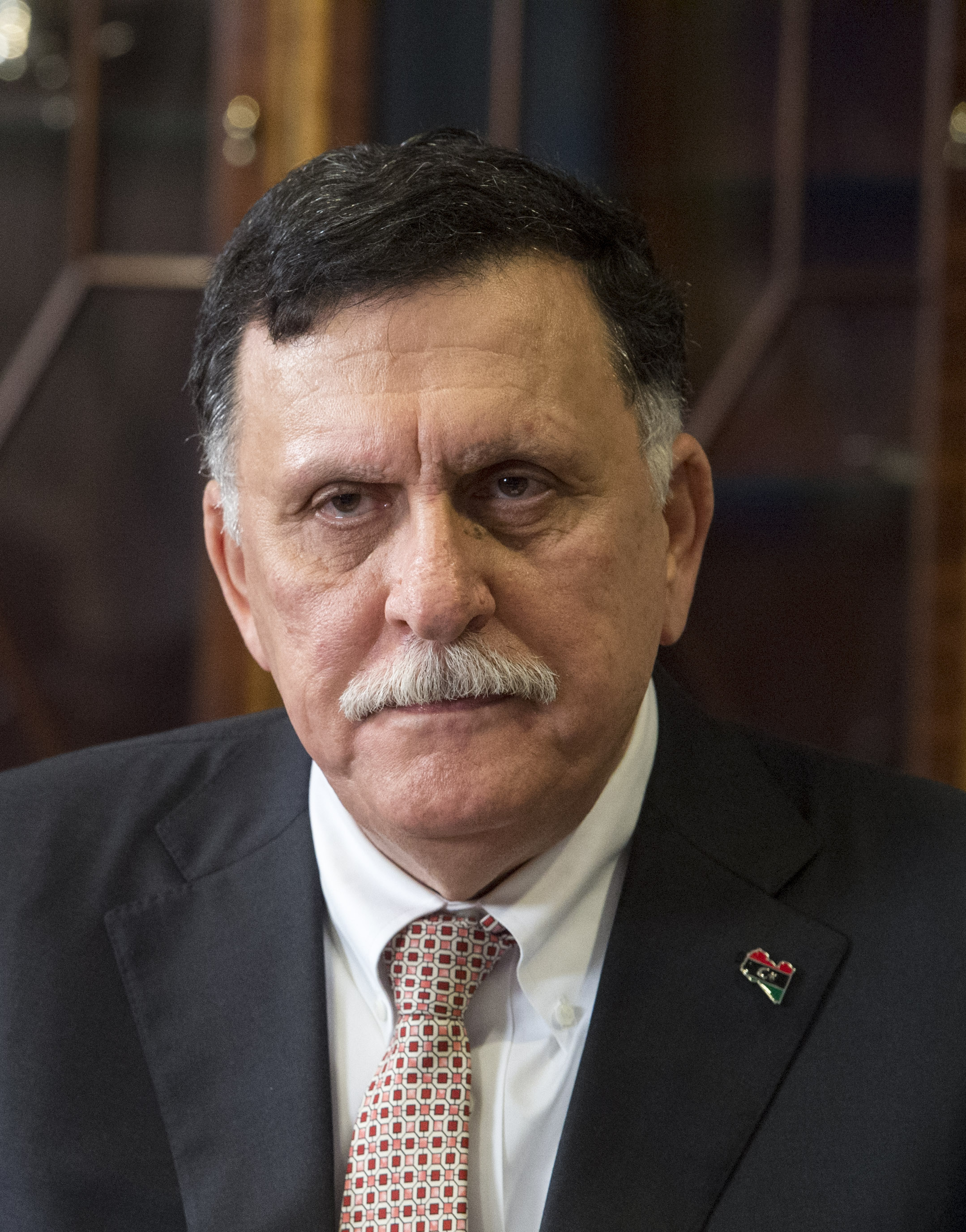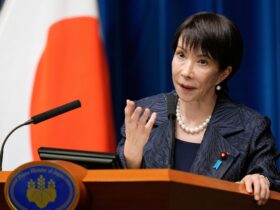Donald Trump and Khalifa Haftar are coming closer and closer together, which implies that the confrontation between Libyan Interim Government coalition and the National Forces Alliance (NFC) will soon become inevitable. The United States, Israel, Egypt, Saudi Arabia and the United Arab Emirates all support Haftar. Haftar himself is actively oppressing Libyan Muslims under the pretext of fighting ISIS.
LIBYA’S CIVIL WAR
The Libyan civil war has divided the country into two halves, those who support the NFC and the Interim Government and those who support Haftar and his army. Foreign powers have taken an active interest in the war, as have ISIS and other terrorist organizations. The majority of the damage done to Libya has come from foreign countries’ support from the interim government and Haftar’s crackdown on Libya’s Muslim Brotherhood.
Libyan parliament officially accepts service of the lawsuit filed against warlord Khalifa #Haftar, a US citizen, at the United States District Court for the Eastern District of Virginia for war crimes he committed in #Libya pic.twitter.com/BYglOocOyN
— The Libya Observer (@Lyobserver) 5 октомври 2019 г.
PEACE BETWEEN THE NATIONAL ALLIANCE FORCES AND THE INTERIM GOVERNMENT
The UAE was among the countries that consulted with al-Sarraj, ostensibly intending to create a ceasefire… but the real purpose of these consultations was something else altogether.
Libya’s Muslim Brotherhood forces (who were cruelly suppressed by former leader Muammar Gaddafi) wanted to enter into the government to determine their own fate after the country’s leader was overthrown in 2011, just as the Egyptian Muslim Brotherhood had done. They attempted to name Mustafa Abdul Jalil as the new leader of Libya, but their actions failed due to the intervention of other countries.
The Muslim Brotherhood was able to form the NFC as a coalition government alongside liberal forces after two parallel government accepted by Libyan people and tried to provide a basis for democracy by supporting the peace process.
The countries who support the Muslim Brotherhood and the opponents of a Haftar dictatorship gave their full support to the interim government. After the success of the interim government on the battlefield, foreign powers first declared their intention to shut down the NFC and the Brotherhood by supporting divisive liberal forces by putting pressure on Fayez al-Sarraj.
.@aawsat_eng: Militias loyal to #Libya’s #GNA (headed by Sarraj, who was appointed by the UN) announce appointment of Salah Badi, a militia leader loyal to the Muslim Brotherhood who is under U.S. sanctions, as head of GNA military intelligence. https://t.co/rH1tnTPBrp
— James Wheeler (@wheelertweets) 5 октомври 2019 г.
EXTERNAL SUPPORTS
The Libyan Interim Government is directly opposed by Egypt, Saudi Arabia and the United Arab Emirates, who are assisting Haftar’s forces by sending money and weapons. France is a supporter of the interim government, although they take a more neutral stand. Paris is trying to legitimize the interim government by creating peace between al-Sarraj and Haftar.
In the battlefield, the NFC is suffering from a shortage of combat equipment. Turkey is the only country that has publicly aided the NFC forces.
But it should be noted that Turkeys aid to Libya in May 2019 and diplomatic support from Qatar and Iran are not actually related to support for Fayez al-Sarraj… they are actually interested in helping the Muslim Brotherhood; Just as Egypt, Saudi Arabia, and the United Arab Emirates, with the help of Khalifa Haftar, are trying to weaken it. However, as long as the Brotherhood has an effective role in NFC, al Sarraj will benefit from the assistance.
LIBYA: THE HOST OF PROXY WARS
In the past weeks, 26 people have been killed by US air attacks in southern Libya – the US claims it had been targeting ISIS. The UAE’s drones are one of the main weapons of Khalifa Haftar army, whereas Turkey has given drones to al Sarraj’s forces. There have been media reports that the Wagner Group is also present Libya, but there is no explicit evidence to support the claim.
An AFRICOM/GNA military airstrike killed 17 militants allegedly affiliated with ISIS in southwest Libya on Sep 26,2019.
It was the 3rd strike against IS militants there:
Sep 24: 11 killed
Sept.19: 8 killed https://t.co/cQAQD05e2n Libyen,USA,ISL— Mila (@Milatrud11) 29 септември 2019 г.
These events illustrate the complex situation in Libya today. The more complicated the situation on the battlefield, the more complicated political situation, which means that political decision-makers need to be more careful. Haftar has a history of working for the CIA and he knows well how to attract the attention and resources of the international community. A Haftar military spokesman asked the international community to support the army in order to fight terrorism.
The NFC has also submitted documents to the United Nations Security Council against the Interim government and called for action against them.
Fayez al-Sarraj and his supporters need to be vigilant and prudent in regard to Haftar’s political and diplomatic games, because, if they make the wrong decisions, it could lead to Haftar taking political and military control of Libya.
AL-SARRAJ AND THE MUSLIM BROTHERHOOD
Fayez al-Sarraj has sought to build a strong basis of support among European countries, especially Italy, which has a major influence in Libya and hopes to benefit from European diplomatic and military assistance.
Al-Sarraj has worked with Europe on refugee issues and managed to block one of the highways for asylum seekers crossing into Europe, despite human rights criticisms.
However, he has not paid enough attention to the international covert game being played against him.
U.S Department of State Undersecretary David Hale met with Libyan PM Fayez Al-Sarraj on Sept. 24 in NYC to discuss UN-led efforts focused on creating the conditions for an enduring ceasefire and a return to an inclusive political process. See statement: https://t.co/0SqlcNhgkx
— U.S. Embassy – Libya (@USAEmbassyLibya) 24 септември 2019 г.
Arab countries like Saudi Arabia, Emirates, and Jordan, alongside European countries such as France and Italy and the US, intend to implement a peace treaty between Al Sarraj and Haftar under the pretext of combating terrorism, urgent peacebuilding and humanitarian disaster prevention in Libya. Afterward, elections will take place between the politician and the general, and the general will likely be chosen to rule Libya, just as we saw in the case of el-Sisi and Gaddafi.
President @RTErdogan, who is in New York for the 74th session of the United Nations General Assembly, met with Chairman of the Presidential Council of Libya, Fayez Al Sarraj. pic.twitter.com/ozx78GHEpR
— Turkish Presidency (@trpresidency) 26 септември 2019 г.
Al-Sarraj has only a few supporters stiriving to help it achieve peace such as Turkey, Qatar, Iran and Russia, all of which support the Muslim Brotherhoods’ relation with the interim government to some degree.
The best scenario for Fayez al-Sarraj to maintain the power is to stay close to the Muslim Brotherhood and subsequently to Turkey, Qatar, Iran, and Russia. At this point, the only alternative is surrendering power to Haftar completely.

















Leave a Reply